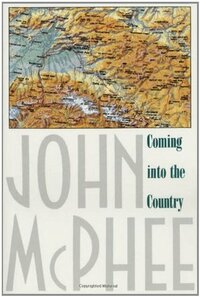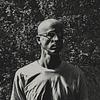Take a photo of a barcode or cover
informative
medium-paced
Stellar journalism. Engaging stories from different perspectives looking at Alaska in the 70s.
While written in the late 70s, its easy to imagine some of the issues and people McPhee writes of are somewhat unchanged, although the parkland has been set and the capitol never actually re-located. A fascinating glimpse at life up there by one of the best writers of his time, nonetheless this book comes off as slightly uneven with a middle section he was clearly less invested in. A must read for those interested in Alaska, however.
informative
reflective
relaxing
slow-paced
Really great non-fiction -- a thoroughly interesting read on nature, people, politics and everything inbetween.
adventurous
informative
reflective
slow-paced
adventurous
informative
inspiring
reflective
relaxing
slow-paced
This book is similar to a collection of essays in three parts. Each part giving you an idea of what Alaska was immediately after state hood. Essays about nature and the wilderness in the far north, about alaskas search for a new state capital, and profiles of the many types of people and walks of life in the bush. Slow, and a perfect pick up and put down whenever kind of book. If you want to spend some time on the river in the country, this book will not disappoint.
Really enjoyed this book.
- Lots of great facts about Alaska - who knew the history of trying to move the capital from Juneau? I had never heard of the Brooks range before, and the stories of people living around Eagle and making a life on the Yukon were immersive.
- Enjoyed the history of learning what makes a national park, how they were identified and selected in Alaska, in conjunction with the Native Claims Settlement Act. The discussions of what the pros/cons of park land are were fun, too.
- The idea of consuming life, with all its manufactured support and luxury, vs. making life for yourself in a more self-reliant manner were entrancing, albeit a bit too drawn out in the third "chapter" of the novel.
- The descriptions of nature and wilderness captivated me and, especially so soon after visiting Alaska, made me really want to go back :)
- The style of the book was interesting - there was essentially zero plot, it was a meandering collection of profiles and anecdotes that were woven together by threaded tangents.
4 stars instead of 5 because the third book dragged on a bit (despite it initially being my favorite of the three).
adventurous
hopeful
informative
inspiring
reflective
slow-paced
As my first foray into John McPhee's extensive catalogue, this was a tough one.
His phrasing and sentence structure was, as expected, expertly curated, conveying information not just with his word choice, but also the pacing and organization of sentences and paragraphs.
*Coming Into the Country* was over 400 pages of the controversy of how to manage Alaska as the final American frontier.
He sourced opinions from federal land management, natives, and white, further subdivided into Alaskan born-and-raised and new arrivals.
The portrayal of all opinions was even-handed and couched in the context from which they arose and the lives of the people from which they came.
Overall, it was a well written piece, but I would recommend it primarily to those interested in the topic *a priori*.
Got bored. I was interested in the nature, but the characters weren’t too compelling, they were all men, and it didn’t seem to be going anywhere new.




